(VOVWORLD) - Conflicts in many parts of the world, a gloomy global economy, the improved role of developing countries, and AI’s gigantic development are among the top ten world events selected by the Voice of Vietnam.
1. Wars, conflicts break out in many parts of the world
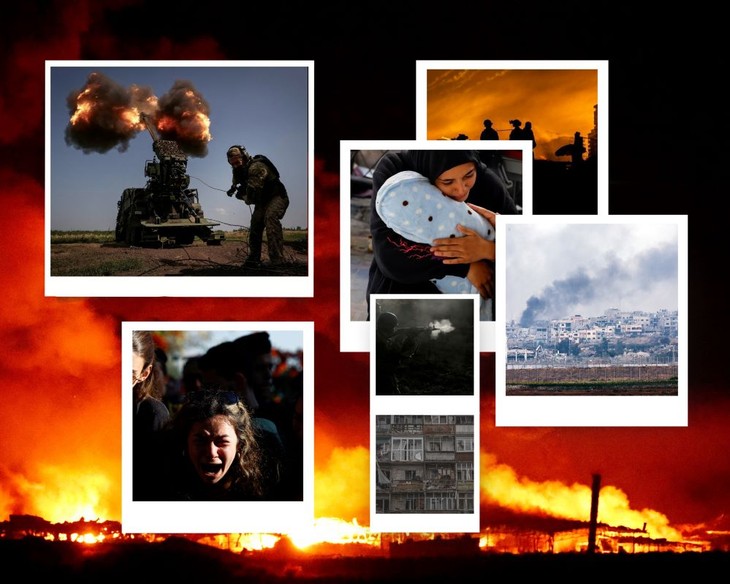 (Photo: Reuters) (Photo: Reuters) |
On October 7, the Islamic movement Hamas which governs the Gaza Strip launched a surprise attack on Israel, killing more than 700 people and arresting more than 100 Israeli citizens. In retaliation, the Israeli government launched its largest military campaign since 1973 attacking Gaza with the aim to completely destroy Hamas forces. The Hamas-Israel conflict continues with increasingly fierce intensity and has left more than 20,000 people dead on both sides while causing a serious humanitarian crisis.
The Russia-Ukraine conflict enters its second year with unabated severity. To date, no diplomatic signal has showed that either Russia or Ukraine will come to the negotiating table to end the conflict.
Other conflicts in Sudan, Myanmar, and Yemen along with North Korea’s continuous missile tests are in the news while many countries have stepped up military investment.
All of these developments show that the world is full of instability. Consecutive conflicts have been seriously affecting global security and continue to have a strong impact on global politics and the economy.
2. Global economy is gloomy
 (Photo: Reuters) (Photo: Reuters) |
The consequences of the pandemic and a series of conflicts and political instability in many regions have made 2023 another gloomy year for the global economy.
Trading in goods declined while inflation and the public debt of many countries increased. The World Bank believes that global economic growth won’t exceed 2.1%. The International Monetary Fund estimates growth to be about 3%.
Unresolved difficulties will likely make the 2024 world economic forecast gloomier.
3. Natural and man-made disasters becoming more serious
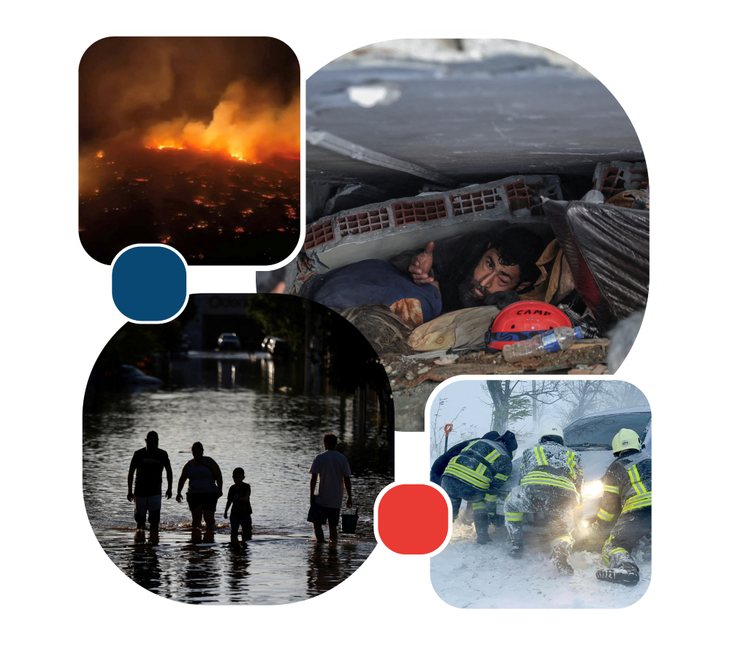 (Photo: Reuters) (Photo: Reuters) |
Earthquakes in Turkey, Syria, Morocco, Afghanistan, and China have caused tens of thousands of deaths. Floods in Libya, Somalia, and Myanmar, forest fires in Hawaii, and drought in South Asia made 2023 a year with many natural disasters and the hottest year in history.
Climate change has become very dangerous and affects all countries, requiring socio-economic development operations to consider the long-term consequences of their actions on the environment.
4. Multilateral organizations expand; role of developing countries strengthened
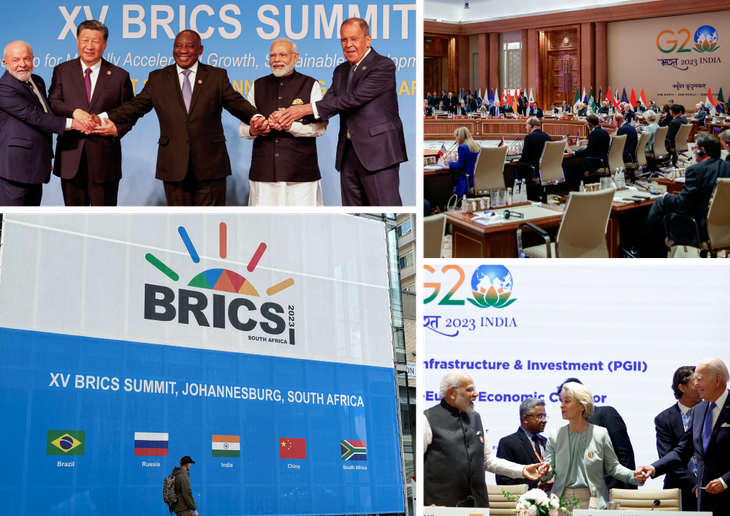 (Photo: Reuters) (Photo: Reuters) |
The African Union was made a permanent member of the G20 at the G20 Summit in India on September 9.
The G20 comprises the world’s richest and most powerful countries. The BRICS group of Brazil, Russia, India, China, and South Africa decided to admit 6 more countries beginning in 2024.
The expansion of multilateral organizations is considered an important breakthrough, demonstrating the greater role of developing countries and emerging economies in promoting multilateralism and establishing a new world economic order more suitable to today’s world.
5. US-China Summit: efforts to control strategic competition
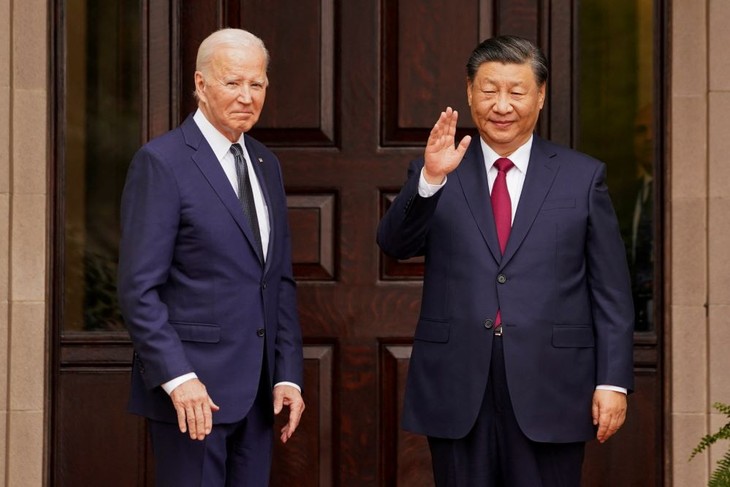 (Photo: Reuters) (Photo: Reuters) |
On November 15, United States President Joe Biden and Chinese President Xi Jinping held a summit to cool tensions and explore closer cooperation to deal with climate change.
This was an in-person meeting between the two presidents after a year of tension in US-China relations due to the Taiwan issue, the US shooting down of a Chinese high-altitude balloon, and conflicts over trade, electronic technology, and cybersecurity.
Despite some improvement in cooperation, competition between the two countries is expected to continue increasing.
6. Coups d’etat occur in African countries
 (Photo: Reuters) (Photo: Reuters) |
In just one year, two coups led by military forces took place in Niger and in Gabon, extending the wave of coups in Africa over the past 70 years.
These takeovers create serious consequences, weaken the democratic process on the continent, negatively impact economies, and increase the risk of terrorism. Political instability further exacerbates poverty and social inequality.
Africa keeps facing challenges from internal conflicts, economic instability, security threats and ethnic divisions.
7. AI’s gigantic development offers both opportunities and risks
 (Photo: Reuters) (Photo: Reuters) |
Emerging on the heels of the first shot by Chat GPT, a series of Artificial Intelligence (AI) apps such as Google Bard, Microsoft Bing, Whisper, Codex, Midjourney, and DALL‑E have had an unprecedented influence in all areas of life in the world.
Although many governments have made efforts to legislate AI control, its rapid development raises public concern about its potential negative impact on society. These perceptions include the risks of data insecurity and online fraud and the possibility of AI becoming more intelligent than humans.
How to make the development of AI serve human progress and limit the negative impacts of this technology is one of the world’s biggest challenges.
8. COP 28 strikes historic agreement to transition away from fossil fuels
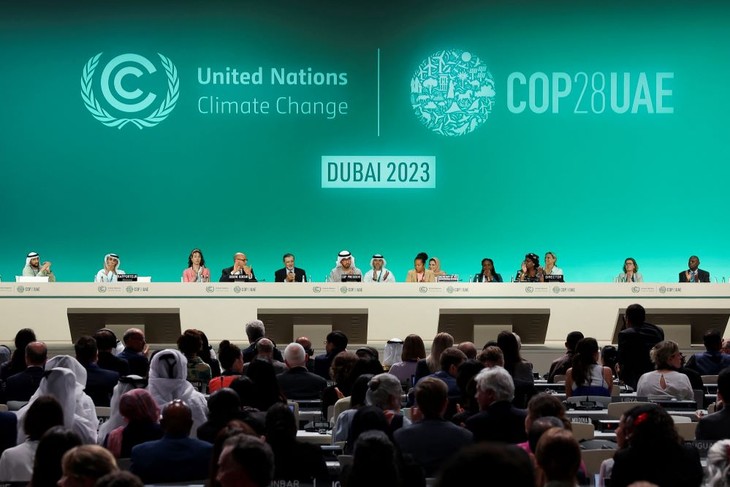 (Photo: Reuters) (Photo: Reuters) |
December 13 marked an historic step forward when the 28th UN Climate Change Conference (COP 28) in Dubai adopted a special agreement calling for transitioning away from the use of fossil fuels in energy systems in a fair, orderly, and equitable manner to achieve net zero emissions by 2050.
The goal is to triple global renewable energy capacity by 2030. The agreement signals the beginning of the end of the fossil fuel era to protect the Earth from rising temperatures, which will result in severe consequences beyond human control. The deal has received the consensus of nearly 200 members attending COP28, but the next step is to take action.
9. India aims to become a power that conquers space
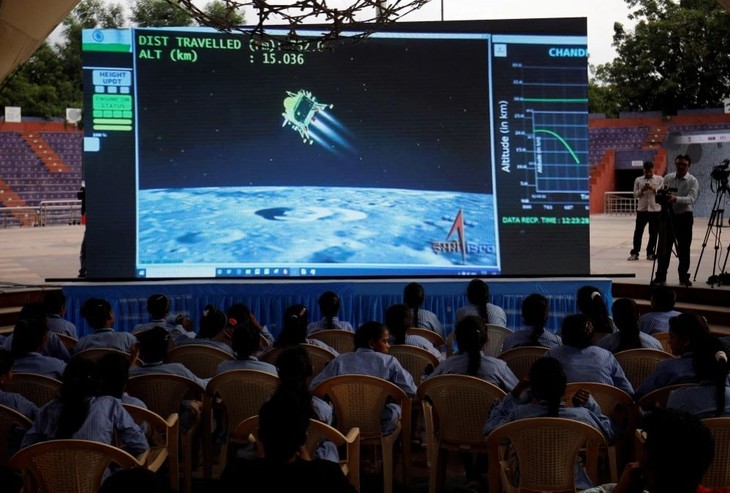 (Photo: Reuters) (Photo: Reuters) |
On August 23, India successfully landed a spacecraft near the south pole of the moon, often referred to as the “dark side of the moon”.
This makes it the fourth country to land on the moon after the US, China, and the USSR. After the moon landing, on September 2, India launched a rocket to study the sun. These successes have launched India into becoming a global superpower in space.
10. World officially emerges from the Covid‑19 pandemic: consequences and lessons
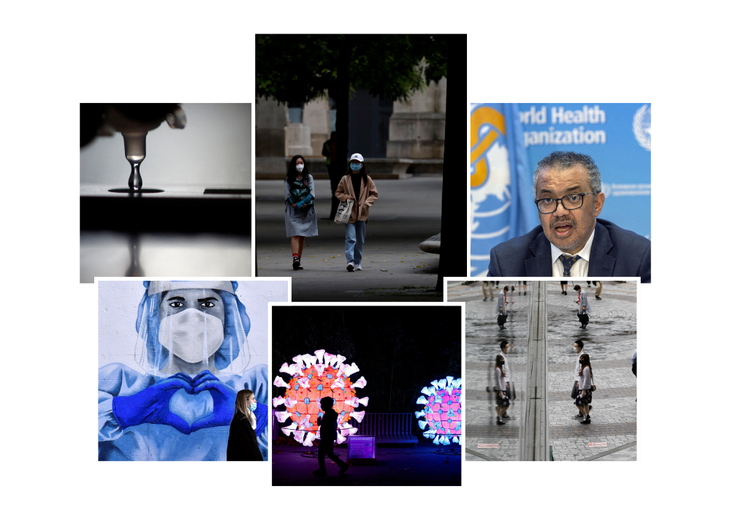 (Photo: Reuters) (Photo: Reuters) |
On May 5, the World Health Organization (WHO) declared an end to the global emergency created by the Covid‑19 pandemic.
After more than three years of the pandemic, this marked the official watershed for closing the largest global health crisis in more than a century. More than 765 million cases of Covid‑19 and 7 million deaths were confirmed since the onset of the pandemic.
There has been a big question about the world’s ability to cope with a super pandemic and its economic, social, and political consequences.